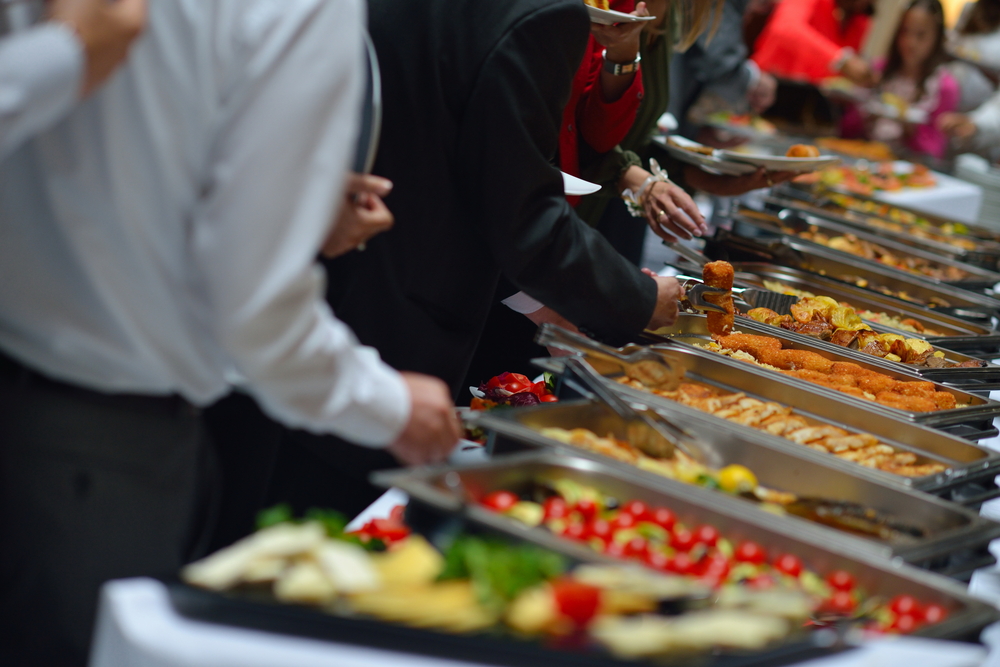A Healthy Diet Doesn’t Have to Be Restrictive
If you are frustrated over restrictive diets that make your life difficult, then make sure you keep reading!
I’ve worked with a lot of people who have ridden the diet roller coaster – on, then off, and then back on again. It’s a never-ending cycle. And there is a lot of information online that can be confusing, so I’d like to try and teach you a technique that can help you understand your own unique nutritional needs, rather than following the latest diet trend.
Have you ever heard of Mindful Eating? Sometimes it’s called Intuitive Eating or Conscious Eating. No matter what we call it, it’s the same practice and it’s a great tool to use to get yourself out of the “diet” mindset. In this post, I’m going to dig deep into a couple of strategies that you can put to use right away.
Mindful eating is learning how to read your body’s cues and letting them dictate when and how much you eat. I know it seems very simple – because it actually IS simple - but if you’re like a lot of people, there’s a good chance you never learned how, or have forgotten how to listen to your body.
Most of us rely on our environment for our cues (when to eat, how much, and what kinds of food, etc.). That can lead you to constantly get caught up in whatever current “trendy diet” is hot right now:
Eat fat, not carbs! Eat protein, not fat! Eat plants, not animals! Eat animals, not plants!
It’s no wonder so many people are completely confused. When you rely solely on popular health trends for guidance, it leads to an endless cycle of guilt and disappointment. From an Integrative health perspective, learning about your nutrition requirements can occur through being mindful.
 Mindful eating, on the other hand, simply means slowing down to LISTEN to your body - and then make decisions based on that. It means eating when you’re actually hungry, and stopping when you are comfortably full. It also means eating foods that help you feel energized and healthy vs. bloated and tired.
Mindful eating, on the other hand, simply means slowing down to LISTEN to your body - and then make decisions based on that. It means eating when you’re actually hungry, and stopping when you are comfortably full. It also means eating foods that help you feel energized and healthy vs. bloated and tired.
When you look at it this way, no foods are “good” or “bad.”
Doesn’t that sound liberating?
The catch? If you’re not used to eating that way, it sounds a little scary not to have specific guidelines. Think of it as a relearning process – but it’s one that brings along a LOT of freedom!
Over time you learn what foods make you feel energized and which ones leave you feeling depleted – and how much food your body actually likes to eat before it feels too full!
How do you learn to start paying attention to your body’s cues? My first suggestion is to SLOW DOWN!
What does that mean, exactly? First, when you are considering eating a snack, meal or grabbing a handful of those jelly beans sitting on the counter, make a rule that you will do it mindfully. This means that you pause, you look at what you are about to eat, you smell it, notice the colours, textures, and anything else that makes it appealing to you. Then, without any distractions, take a single bite, set down your fork and chew thoroughly. Notice the flavours. See if you can pick out something about the food that you hadn’t noticed before. Ask yourself what it is that makes this food so tempting to you.
Continue to eat whatever it is in this manner. You are turning eating into a completely pleasurable experience and you are being mindful the entire time. This increases the likelihood that you will stop eating before you are over-full and uncomfortable.
My second suggestion… Wait for your body to TELL you it’s hungry … and then enjoy your food, until your body tells you it’s full. This one is a little trickier, because we eat for so many reasons that have nothing to do with actual hunger: we eat because we’re bored, stressed, thirsty, or because people around us are eating.
Below is a Hunger Scale that I thought might be helpful. It’s adapted from one used by the Derbyshire Healthy Futures Service in England.
It helps you rate (on a scale from 1-10) how you’re feeling on the hunger/fullness scale.
Most people feel best when they stick within the 3-6 range. Here’s the scale:
- You’re beyond hungry. You feel absolutely ravenous, might feel light-headed or headache-y, and your body is weak.
- Uncomfortably hungry (or “hangry”). You’re grouchy and might feel a little tired.
- You want to eat and your stomach feels empty.
- You are thinking about food and starting to feel hungry.
- You’ve eaten enough food to stop the hungry feeling, and your mood is good.
- You’re satisfied and feeling comfortably full.
- Your body is full but your mind wants to eat more, so you take a few extra bites.
- After taking a few “extra” bites, you begin not to feel as well. You regret your decision. You know you should probably stop eating.
- You keep eating, and with even more food, you feel bloated, tired, and uncomfortable.
- You STILL continue to eat. You might be sweating, your heart pounding, and you feel miserable.
One of the things I like about this scale is that it’s relatable. I definitely have been everywhere on that scale at one point or another. I think we all have!
Here’s why it matters ...
When you get too hungry, it sets you up to overeat … and when you overeat, you feel tired, sick, and tempted to skip meals, which will eventually make you feel too hungry again. It can turn into a yo-yo cycle.
Finding your sweet spot is a big part of mindful eating.
Both of these tips might take a little practice … but it’s definitely worth it!
See where we can help you find your sweet spot.
www.dchs.nhs.uk/assets/public/dchs/llb/tools/tools_1-11/4_DCHS_A5_4pp_The_Hunger_Scale.pdf
www.webmd.com/diet/obesity/features/slow-down-you-eat-too-fast#1
www.healthline.com/nutrition/mindful-eating-guide#rationale
www.ncbi.nlm.nih.gov/pmc/articles/PMC6356451/
www.ncbi.nlm.nih.gov/pmc/articles/PMC4375288/
www.healthline.com/nutrition/quick-guide-intuitive-eating
